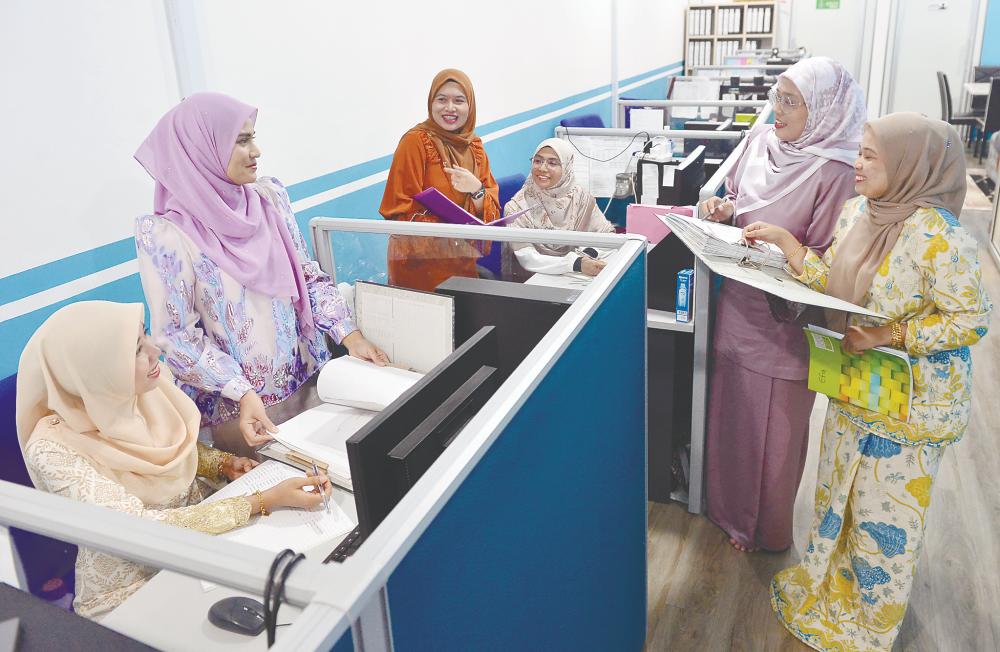PETALING JAYA: Some 38.3 percent of Malaysian employees said their primary reason for staying in a company no longer relates to the salary package but location and flexible working arrangements.
A survey of 2,014 skilled professionals and 832 employers conducted by the 2024 Hays Asia Salary Guide listed five main factors, with the top three having little to do with remuneration packages.
It said having a healthy work-life balance was cited by 35.8% of employees as a major reason for staying in their company while positive relationships with employers or colleagues came in third with 34.6%.
Only 30.8% chose a competitive salary package and bonuses, while promotions and internal career opportunities were the least influential at 21.8%.
Malaysian Employers Federation (MEF) president Datuk Dr Syed Hussain Syed Husman said in today’s evolving work environment, workplace location and flexible work arrangements are the major factors.
ALSO READ: Salary no longer top reason for resigning
“These determine employee satisfaction, productivity, and overall organisational performance within companies.”
He said employers that ignore these will witness higher attrition rates, which will weigh on their companies’ productivity, performance and sustainability.
“Overlooking the aspects of the modern work environment may ultimately erode an organisation’s performance and long-term viability, jeopardising its ability to successfully compete in today’s business landscape.”
Syed Hussain said while MEF supports the implementation of flexible working arrangements, this must follow the specific characteristics of each job.
“Flexible working arrangements are a valuable tool that is here to stay. By leveraging it effectively, businesses can benefit from increased employee satisfaction, improved productivity and better work-life balance for employees.
ALSO READ: Shaping a future for the workforce
“This, in turn, can lead to increased employee retention, productivity and overall organisational success.”
Syed Hussain said emphasising work-life balance has become increasingly prevalent among employees, contributing to their growing preference for workplace location and flexibility over salary.
He said employees have now recognised the importance of achieving a balance between their professional and personal lives, leading them to seek workplaces that offer such balance as a priority.
“This shift in mindset has led to a greater appreciation for workplace location and flexibility, as it enables employees to better manage their time and commitments outside of work.
“Consequently, employees are placing less emphasis on salary and valuing the benefits of a conducive work environment that supports their overall well-being and quality of life.”
ALSO READ: ‘Burnout’ a serious issue at Malaysian workplaces
Syed Hussain said employers who prioritise and offer such a balance are more likely to attract and retain top talent and contribute to the long-term sustainability of their organisations.
“Offering flexible working arrangements as a perk can be advantageous to improving employee retention and aligns with the expectations of modern workforce dynamics.
“As a result, employers can better position themselves to attract, retain, and engage the best talent in a competitive job market.”
Universiti Sains Islam Malaysia Human Resources and Development lecturer Prof Madya Dr Abdul Rahim Zumrah said workplace location and flexible working options contribute to significant cost reductions.
“Commuting and childcare expenses are lowered for married employees who typically place a high value on achieving a healthy balance between their professional responsibilities and personal lives.
“Workplace location and flexible working options play a crucial role in facilitating this balance by allowing employees to better manage their time and commitments.”
Abdul Rahim said compared with single individuals, married employees often face additional responsibilities outside of work, such as caring for children or elderly relatives.
“For them, workplace location and flexible working options can alleviate some of the challenges associated with balancing work and family life.
“By having a workplace close to home or the flexibility to adjust their schedules as needed, these employees can more effectively meet their family obligations while still fulfilling their professional duties,” he said.
ALSO READ: Workplace mental health support, access still lacking









